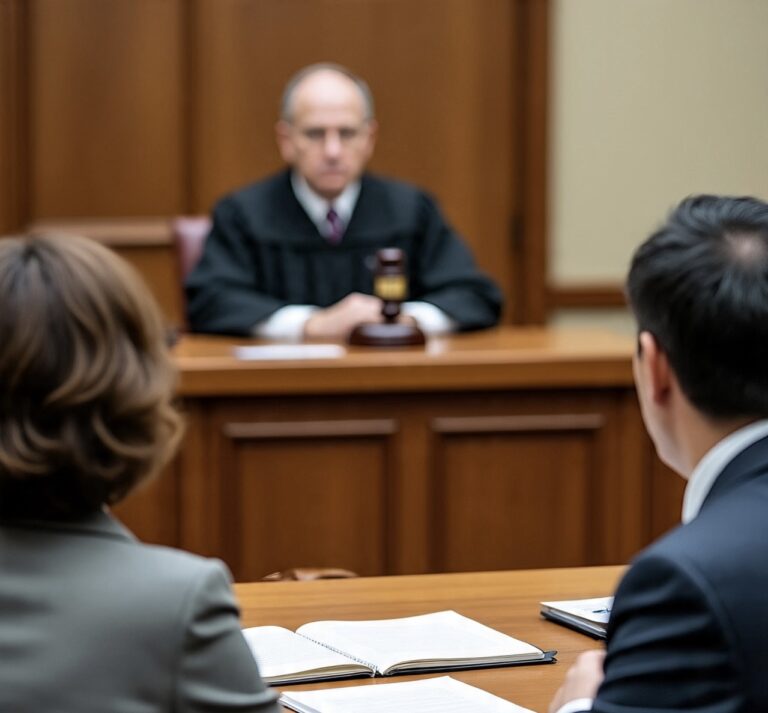The Human Side of Law: Why Understanding Justice Matters
For aspiring lawyers, studying criminal justice is more than learning legal codes and courtroom procedures. It is about understanding people, including their motivations, struggles, and rights. The law exists to protect human dignity, yet its power is meaningful only when applied with compassion. Future lawyers need to see justice as both a system of rules and a reflection of society’s commitment to fairness and equality.
A strong foundation in criminal justice introduces students to the systems that govern human behavior, the structures that maintain order, and the ethical choices lawyers face daily. It also builds a sense of responsibility toward communities affected by these systems.
1. The Broader Meaning of Justice
Justice is often imagined as a verdict or a ruling, yet its true meaning reaches far beyond the courtroom. It represents the balance between law and humanity — the assurance that every individual is treated with dignity and respect. Laws can exist without fairness, but justice cannot exist without compassion.
Understanding this difference helps future lawyers see the larger purpose behind their work. Justice is not a static idea but a living principle that adapts to changing times and diverse experiences.
2. The Balance Between Knowledge and Compassion
Lawyers are trained to think logically, analyze facts, and argue effectively. Yet great lawyers also Lawyers must also reason clearly and interpret laws with precision, yet justice depends on more than technical skill. It grows from understanding people and the circumstances shaping their lives.
Legal education now encourages this balance through programs that blend theory with real-world insight into ethics, culture, and human rights. Flexible study formats make this approach accessible to more learners. For instance, an online bachelor criminal justice degree allows learners to study legal principles and human rights at their own pace. It gives them time to reflect, engage with material meaningfully, and connect knowledge with empathy.
3. The Role of Empathy in Legal Education
Empathy is a cornerstone of justice. It allows future lawyers to understand the feelings and perspectives of the people they represent. When students read about criminal cases, they learn that each file represents a human life shaped by circumstances, pressures, and choices. Recognizing this adds depth to their sense of duty.
Legal education often includes simulations, client interviews, and case studies that reveal how decisions affect individuals on both sides of the law. These experiences teach students to listen carefully and respond thoughtfully. Empathy transforms legal training from a process of memorization into a journey of understanding.
4. The Roots of Crime and Conflict
To understand justice, one must understand why people break the law. Crime is rarely the product of a single moment; it often reflects deeper issues within society — poverty, inequality, trauma, or lack of opportunity. When students study the causes of crime, they learn to see offenders not only as lawbreakers but as individuals influenced by social and psychological factors.
Exploring the roots of crime encourages compassion without excusing wrongdoing. It helps future lawyers and policymakers design fairer systems that focus on prevention and rehabilitation rather than punishment alone.
5. The Importance of Ethical Judgment
Lawyers frequently face difficult moral choices. Defending a client, interpreting a statute, or negotiating a plea deal often involves weighing personal beliefs against professional duties. Ethical judgment is what guides these choices toward fairness.
Through the study of ethics and human rights, law students learn to think beyond personal gain or legal victory. They examine questions of responsibility, honesty, and accountability. Understanding the human cost of every decision helps them act with respect for the truth and for those affected by the law.
6. The Connection Between Justice and Community
Justice does not exist in isolation. It lives within the fabric of every community, shaping relationships, responsibilities, and trust. When communities lose faith in their justice systems, inequality deepens, and fear replaces respect. For justice to thrive, communities must feel heard and valued.
Aspiring lawyers should understand that their role extends beyond the courtroom. They serve as bridges between the law and the people it protects. Community engagement teaches students that justice depends on collaboration. When individuals see the law as a tool for fairness rather than punishment, it builds cooperation and accountability.
7. The Value of Diversity in Law
Diversity gives justice its depth and strength. Every culture, background, and perspective adds a new understanding of fairness and equality. When the legal profession reflects this diversity, it becomes more responsive and inclusive. A diverse body of lawyers can interpret the law with sensitivity to the experiences of all people, not just a few.
Aspiring lawyers must learn to recognize and challenge bias. Studying criminal justice provides exposure to cases where cultural misunderstanding or prejudice affected outcomes. This awareness fosters humility and open-mindedness. It reminds students that justice should never favor one voice over another.
8. The Application of Legal Theory to Real Life
The study of law becomes meaningful when theory meets reality. Students may spend years mastering statutes, precedents, and legal frameworks, but real understanding develops through practice. Engaging with real cases, community projects, or internships helps students see how the law affects people’s daily lives.
Through hands-on experiences, learners witness how theory translates into outcomes, sometimes successful, sometimes flawed. They see the gaps between written law and lived experience. These lessons create awareness that justice must evolve with society. It cannot remain confined to books or traditions; it must respond to human needs.
Justice is more than a goal; it is a promise society makes to its people. For aspiring lawyers, understanding the human side of law ensures that this promise is honored. Laws shape communities, but empathy gives those laws meaning. Without compassion, justice becomes mechanical. With it, justice becomes a force for healing and equality.
The study of criminal justice equips students with the tools to interpret and apply the law, but it also nurtures their moral and emotional awareness. Through reflection, engagement, and learning, they discover that their work carries the weight of real lives and real consequences. Every case, policy, or argument becomes a chance to uphold dignity and fairness.






